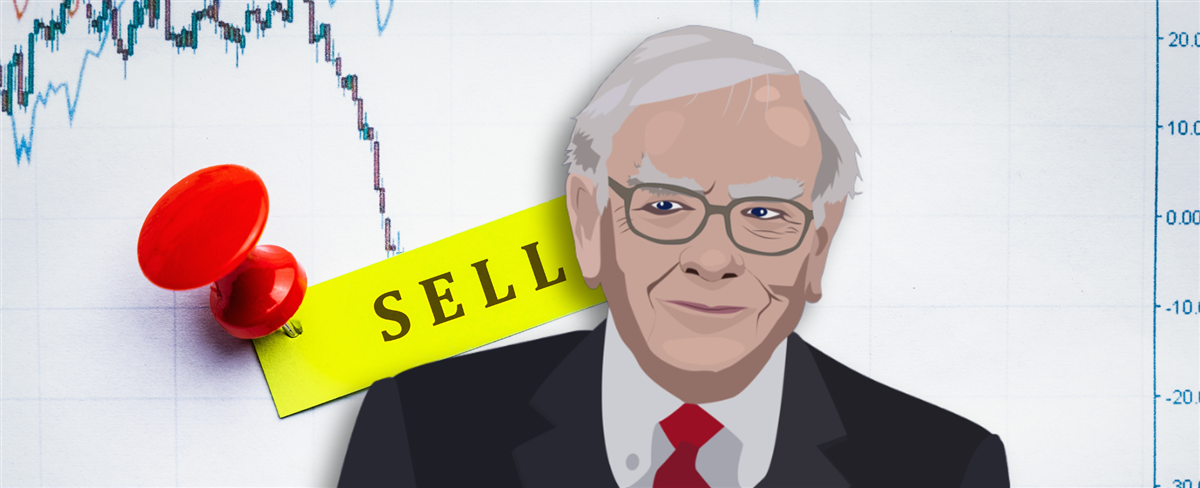
When the biggest minds on Wall Street decide to make a significant move in their portfolios, retail investors better pay attention and attempt to reverse engineer the thinking and reasoning behind these moves. Today, investors can look at the recent 13-F filings from the Oracle of Omaha himself, Warren Buffett.
Buffett’s view on markets is taking the long view. Still, he has no issues reducing his exposure to the markets when and if valuations stop making sense for his strategy. Such an environment came in 1999 when Buffett mentioned in a CNN interview that he had been going into cash and selling some stock in anticipation of a lost decade in the S&P 500.
The same factors that he mentioned then are present today, and more intensely, so investors can look to his selling in shares of Apple Inc. (NASDAQ: AAPL) as a symptom of these views on the overall market. However, Buffett has been selling shares of other companies with similar trends behind them. It seems he’s getting out of the consumer discretionary sector as a whole for the following reasons.
Markets May Not Repeat, But They Often Rhyme: Key Lessons for Investors
Back in 1999, a few metrics fell so out of place that Buffett considered selling out of the market. These same metrics are back, if not worse, to the levels that got Oracle to stay out of the game for a little while. Starting with corporate earnings as a percentage of the United States gross domestic product (GDP), here’s what that looked like then.
6.5% of GDP was sufficiently above the long-term 4% average for Buffett to consider the overall stock market expensive. This would then be simplified into the famous “Buffett indicator,” which measures the stock market's level to GDP as a ratio.
Today, corporate earnings look more like 11.5%, much more expensive than they were back then. Consequently, the Buffett indicator is now at an all-time high, making the levels back then seem like a shadow of today’s market. For this reason, Buffett might initially be looking to get out of some cyclical names in the market before it’s too late.
However, investors need to understand why higher corporate earnings and a higher stock market-to-GDP ratio will be troublesome in today’s economy. When Buffett issued his warning for a lost decade, inflation was on the higher end of the spectrum, and so were bond yields.
This means that, on a real (not nominal) basis, earnings per share (EPS) would have to grow above both the inflation rate and bond yields today to justify today’s S&P 500 valuations. According to analysts at Goldman Sachs, the S&P 500 won’t be able to deliver much above a 3% annualized return for the next decade.
Wall Street is confirming this theme and betting that, from today’s extended levels, EPS won’t be able to outpace inflation and bond yields by a healthy enough margin to deliver more than a low single-digit rate of return.
What Buffett Recently Sold in the Cyclical Sector and Why It Matters
Apart from selling Apple for two quarters in a row, Buffett has chosen to target some other names that depend on the consumer cycle in discretionary spending. Floor & Décor Holdings Inc. (NYSE: FND) made it to this sell list as well, a name that Charlie Munger, Buffett’s former partner, compared to Costco Wholesale Co. (NASDAQ: COST).
Expanding into the financial sector branch of the consumer space, Buffett also decided to reduce his exposure in shares of Capital One Financial Co. (NYSE: COF), understanding that consumer credit might be one of the first niches of the market to see the pains of a slowing consumer.
But Buffett didn’t stop at credit cards and simple credit trends. He also reduced his stake in Bank of America Co. (NYSE: BAC). When investors consider the hierarchy of payments, this move makes sense, as discretionary products fall first, followed by credit cards, and finally, items like car loans and mortgages.
With 10-year bond yields going up to 4.3% and inflation edging back to 2.6% right now, it seems that the future projections for the S&P 500 and these stocks will not be enough to justify Buffett's staying along for the ride.
While this doesn’t mean every investor should buy and sell like Buffett is choosing to, it does call for a second look into the market and individual holdings around this new theme.




